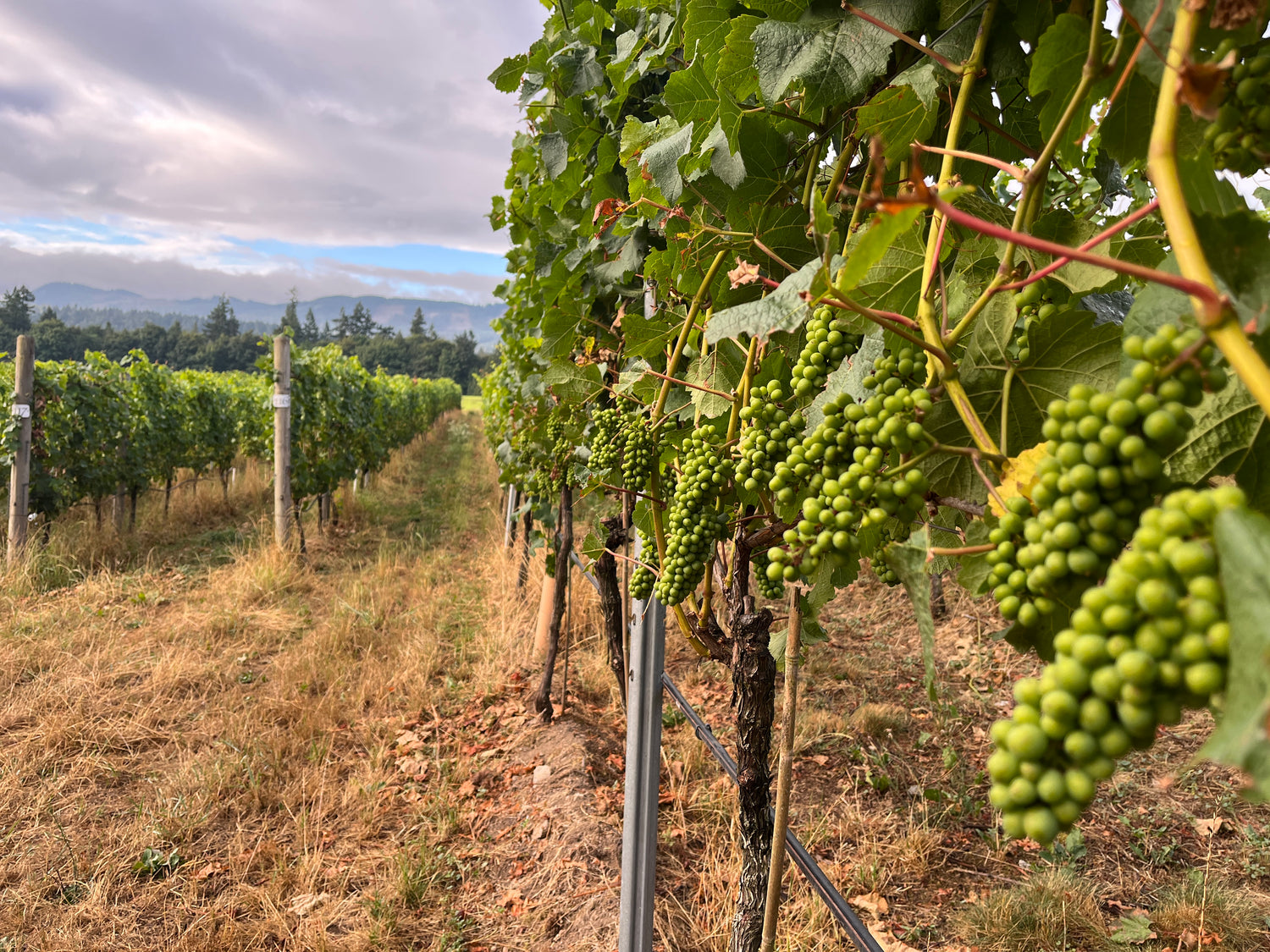
Unsworth Winery
Unsworth is a winery that also farms their own vineyards. They are located in the Cowichan Valley on Vancouver Island, BC, and currently farm 55 acres of owned and leased properties. The first estate blocks were planted around 2010 with more acreage joining the fold in 2023 and 2024.
Operation Outline
Enterprises: Wine
Wine grapes, Tasting room, Restaurant
Motiviation for change: High inputs/High outputs
The system was not producing the high quality fruit needed for premium wine production;
New ownership has committed to converting all owned properties to "regenerative" farming;
Consumers are taking more interest in how the vineyards are farmed and dislike the idea of high chemical inputs
Innovations:
Changed pruning to suit context;
Hired highly skilled staff at above market pay;
Slurry sprayer for soil sprays;
Implemented no-till alleyway covercrops and minimum-till undervine covercrops;
Formed grazing partnership with local sheep farmer
Key Results:
Successfully replaced all synthetic fungicides with certified organic ones in year one - no disease pressure noted in the vineyard;
Replaced soil-applied synthetic fertilizers with foliar fertility inputs;
Implemented rigorous soil and sap testing protocols;
Implemented vineyard monitoring using Soilmentor; Reduced irrigation water used by 50% after installation of soil moisture sensors and a flow meter; overall reduction of 10%+ in farming costs in year 1
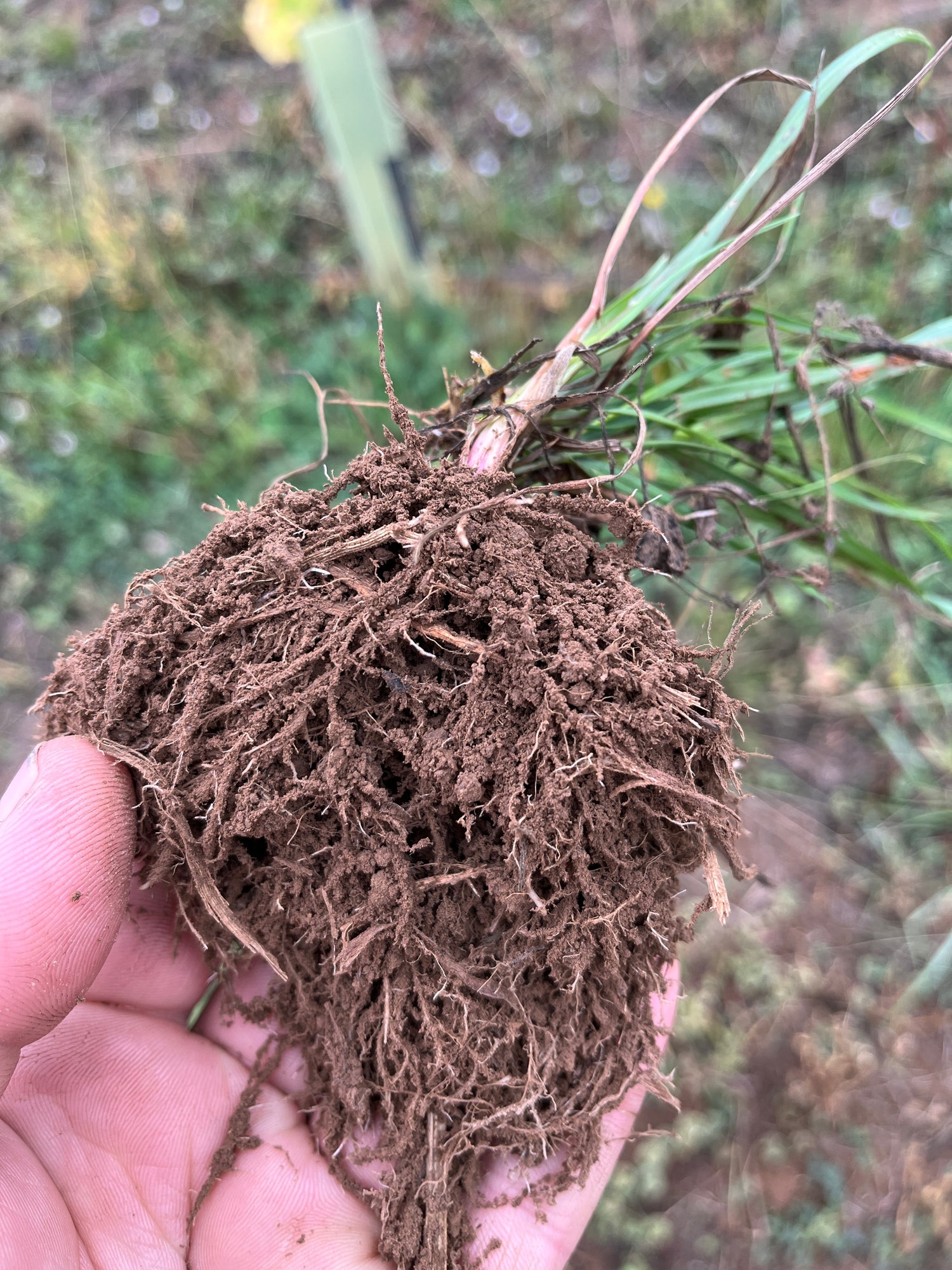
Soil Summary
Year 1: soil testing and visual assessments;
Applied for grant funding;
Removed several mowing passes, changed the timing of remaining passes to allow for more biomass production and seed set on flowering crops, and increased cutting height to allow for faster regrowth and increased residue;
Drilled no-till cover crops to add species and root diversity;
Grazing trial with 10 ewes
Year 2: building slurry sprayer for mineral, biology, and carbon applications;
Addition of minerals to address low overall base saturation and availability levels (cations and traces);
Run aerator in the vineyard to kickstart sluggish decomposition and impact moss and perennial low-quality grasses;
Form partnership with local sheep farmer and design off-season grazing plan for all properties;
Choose monitoring sites and use Soilmentor to track progress (or lack thereof)
After year 1, water is no longer ponding in the vineyard where it previously was (rainfall is comparable);
Ground cover regrowth was stronger and faster after the first late summer rains;
Cover crop take is reasonable in most areas and excellent in those with less competition from low-quality perennial grasses
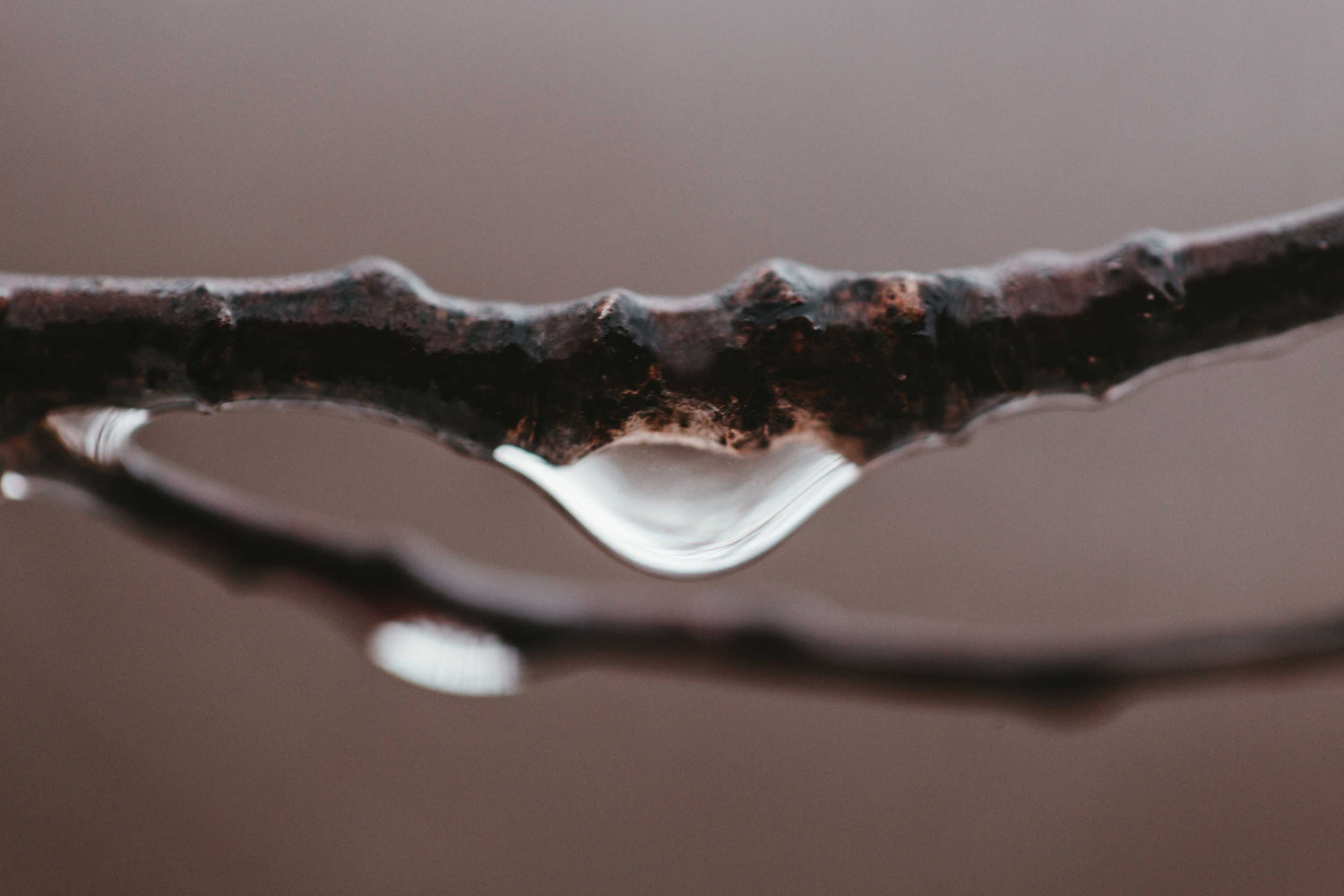
Water Summary
Installation of soil moisture sensors and flow meters to monitor the volume and impact of irrigation sets;
Upgrading all drip lines and valves to state-of-the-art parts;
Formed partnership with a local precision viticulture company to design and build an irrigation control system based on recorded local data;
Soil sensors alone reduced water use in new plantings by 50% compared to what was planned initially
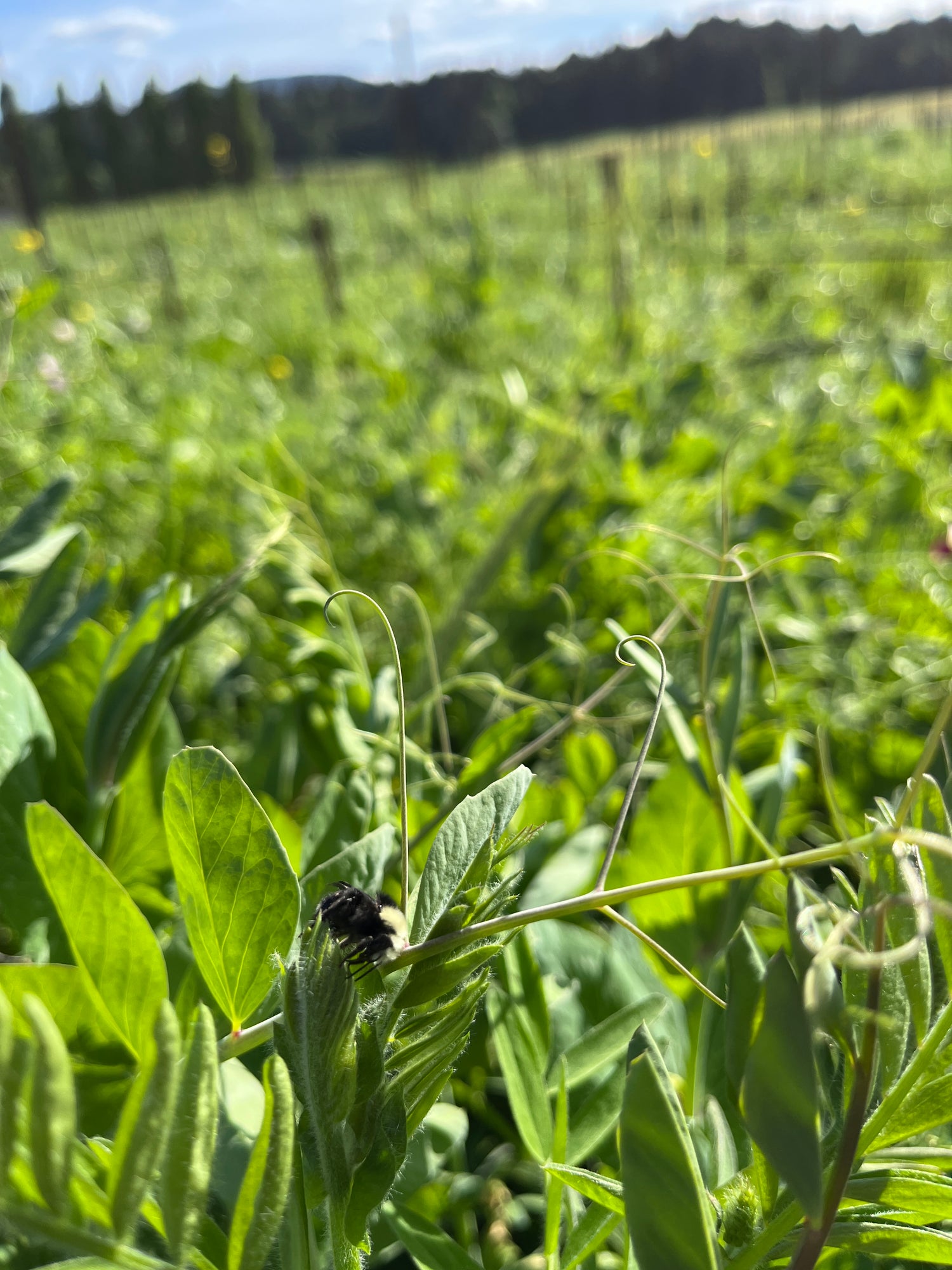
Vegetation Summary
Fewer, higher, and differently timed mowing passes;
No-till annual cover crops over the dormant season;
Trialing grazing in the off-season;
Stronger and faster regrowth after the first late-summer rains;
Percentage of covered ground seems to have increased (yet to be confirmed via monitoring);
No more ponding in the vineyard rows - head lands still have ponded areas
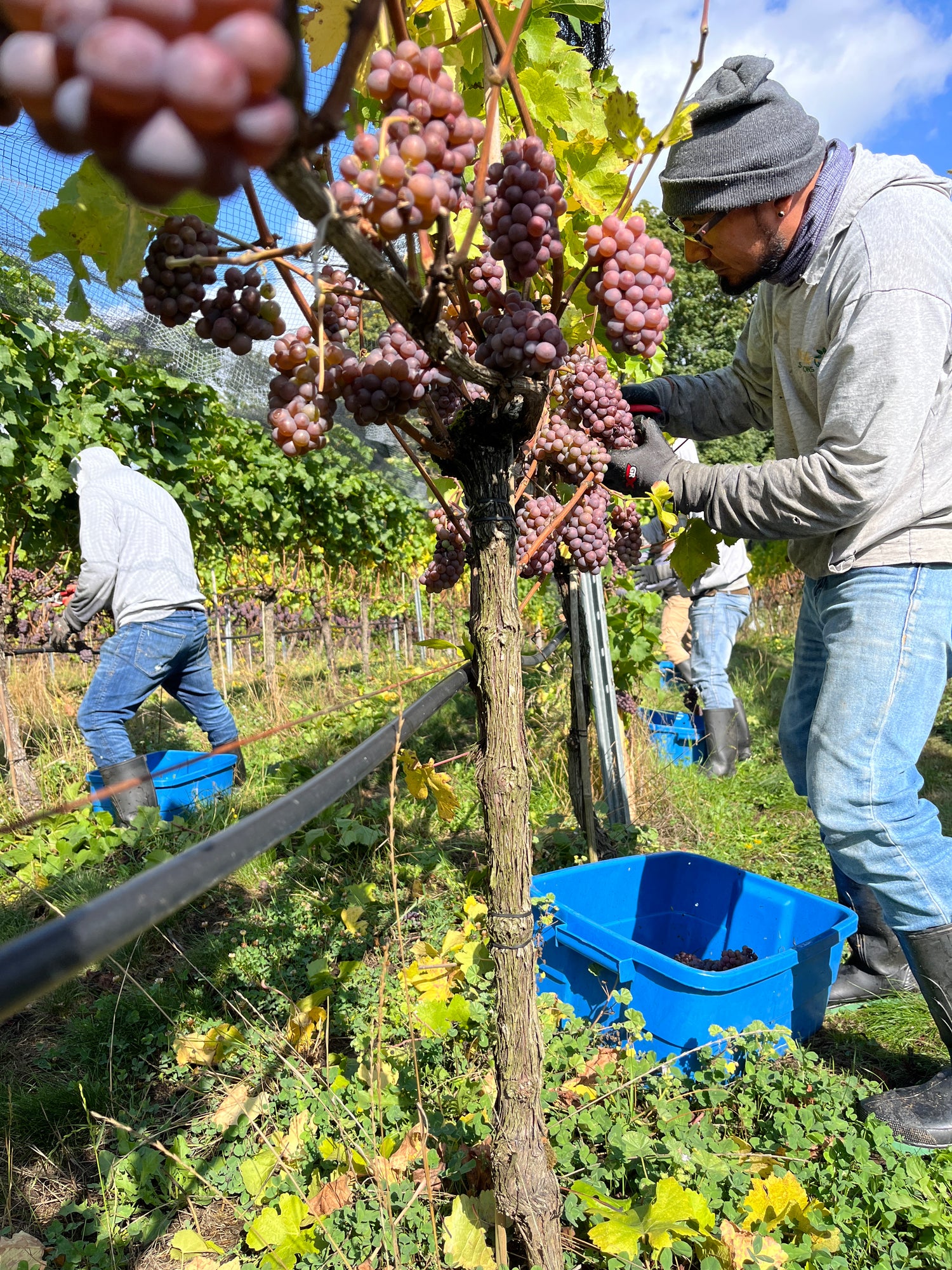
Production Summary
Changed pruning to encourage live, perennial wood and branching within the context of the trellising;
Successfully replaced a synthetic fungicide program with an organic one with no negative impacts on fruit quality;
Removed soil-applied fertility and replaced it with foliar sprays;
Introduced sap testing to guide nutrient applications;
Went from high N and high K inputs to high Ca and specific traces as demanded by the plants;
Hired highly skilled labor and paid them above market to ensure timely completion of manual tasks.
Canopies and fruit load were way more balanced than under the high input system;
Only one hedging pass was necessary;
Zero powdery mildew or insect pressure and virtually no botrytis at harvest (aka no wasted fruit);
Fruit chemistry at harvest required no intervention at the winery;
Production costs dropped by 10%+
Felix Egerer is an independent viticulturist and agroecology coach based on British Columbia's Vancouver Island
An alumnus CREATE student and coach, he also guides farmers around the world on their regenerative journey and rediscovery of joy in life with his company Agricola Soils.
More Case Studies
-

-
More Soon
-

More Soon
Pair text with an image to focus on your chosen product, collection, or blog post. Add details on availability, style, or even provide a review.







